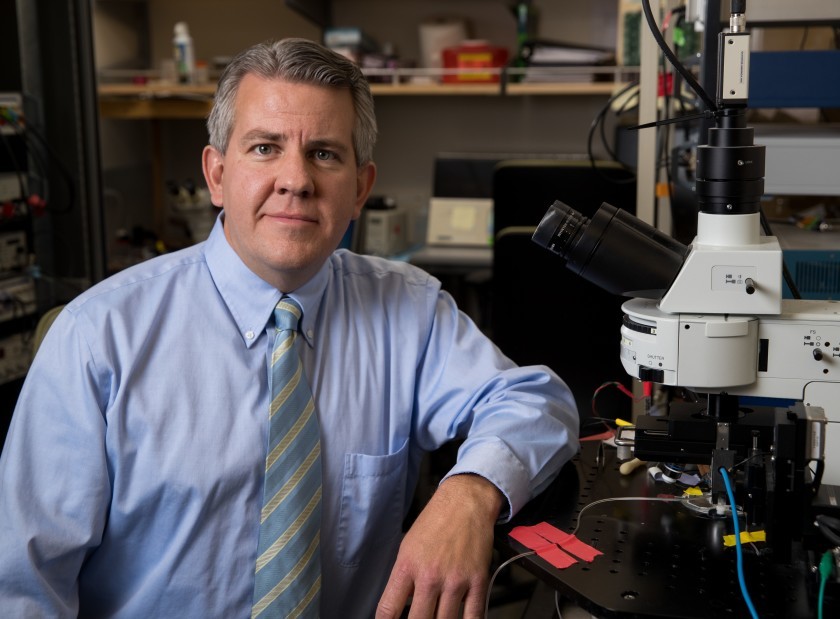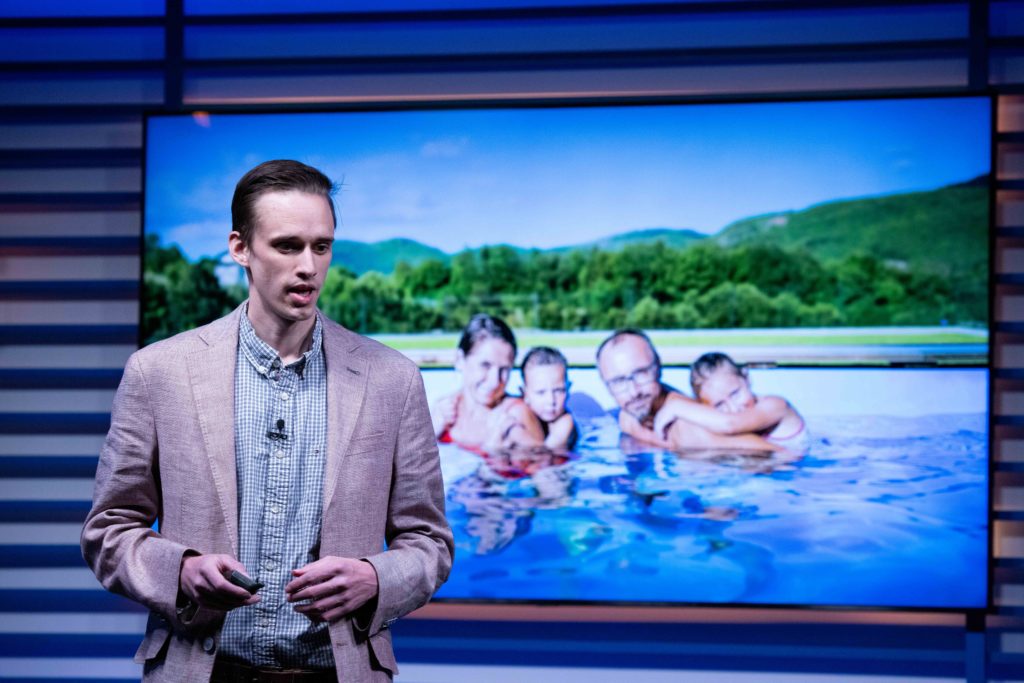Ira A. Fulton College of Engineering
BYU engineering and theatre arts students teamed up to create an animatronic cougar. The cougar, affectionately known as “Cosmotron,” is made with a combination of mechanical, electrical and computer engineering; software controls and prosthetic fur, teeth, eyes and claws. All of the pieces come together to create a realistic moving and emotive cougar controlled by PS4 controllers.
The challenge the students faced was figuring out how to fit the complex mechanics and software needed to control the cougar inside its small head. So the students split up into groups to tackle each task. The mechanical team focused on the motor controls of the cougar, creating its skeleton and moving pieces. The software team designed a system to power the motors. The theatre arts students then focused on making the cougar look realistic, even using a taxidermy cougar from the Bean Museum to get the details correct. Cosmotron is still a work in progress, but the students are encouraged by how far they have come.
College of Life Sciences

Professor Jeffrey Edwards will be the new director of the Neuroscience Center beginning July 1. Edwards acted as the associate director for six years under Ramona Hopkins. He also acts as a professor of physiology and developmental biology and runs the BYU Edwards Lab, where he mentors students researching memory and learning.
“Dr. Edwards is well-prepared for this new assignment,” College of Life Sciences dean James P. Porter said. “I am confident that he will help the Neuroscience Center and its undergraduate and graduate programs to thrive.”
Marriott School of Business

Eight teams won the Marriott School’s competition, the Miller New Venture Challenge, winning $15,000 each. These teams presented their business ideas and products to a virtual panel of judges. Their products were judged in four ways: if the students identified a customer pain, resolved that pain, created a product that is both competitive and unique and if they had a clear plan to execute their product in the market. The teams presented their ideas in five to eight minute presentations. The eight winners were chosen, along with four honorable mentions and two additional audience awards, and will receive $15,000 as well as resources to help their product become a reality.
“We are incredibly proud of the resiliency and creativity of BYU’s talented student entrepreneurs this past school year, especially given the hardships they faced with the pandemic,” said Jeff Brown, associate director operations for the Rollins Center. “We look forward to working closely with the students this summer so they can continue to build their businesses.”
Click the buttons below to visit each college’s news page, or see general BYU news here.




